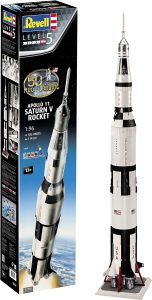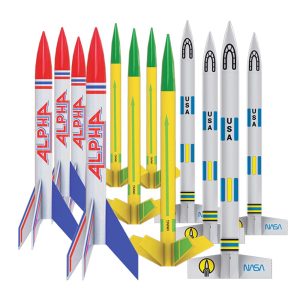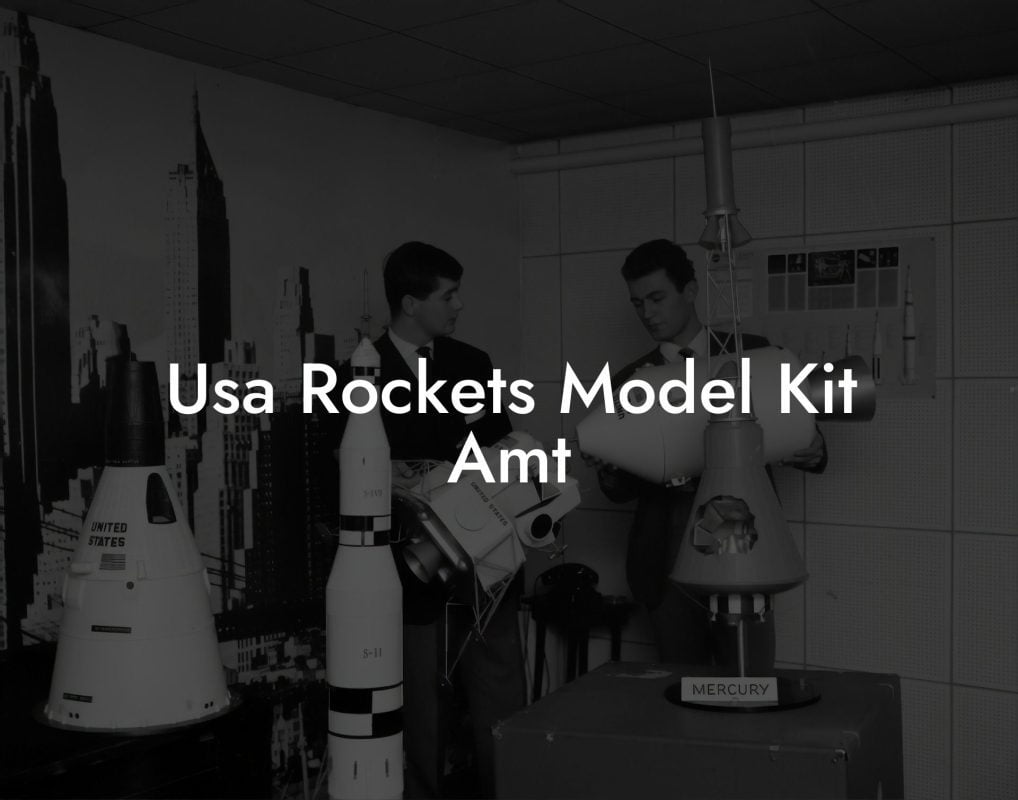Imagine the thrill of launching your very own model rocket into the sky, watching it soar to incredible heights, and experiencing the rush of excitement as it returns to Earth. Welcome to the world of model rocketry, where science, technology, and adventure come together in a fun and exhilarating way. Whether you're a seasoned enthusiast or just starting out, this comprehensive guide will walk you through the laws and regulations governing model rocketry, ensuring a safe and enjoyable experience for everyone involved.
Quick Links to Useful Sections
- Understanding Model Rocketry Laws and Regulations
- Key Laws and Regulations for Model Rocketry
- Safety Guidelines for Model Rocketry
- Model Rocketry Organizations and Resources
- Getting Started with Model Rocketry
- Frequently Asked Questions about Model Rocketry Laws
- Resources and Community Support: Your Next Steps
Understanding Model Rocketry Laws and Regulations
Model rocketry is a popular hobby that involves designing, building, and launching rockets into the air. While it's an exciting and educational activity, it's essential to understand the laws and regulations surrounding model rocketry to ensure safety and avoid any legal issues.
In the United States, the Federal Aviation Administration (FAA) regulates model rocketry under the Federal Aviation Regulations (FARs). The FAA has established specific guidelines for model rockets, including size, weight, and propulsion limits, as well as rules for launching and operating model rockets.
The National Fire Protection Association (NFPA) also provides guidelines for model rocketry, focusing on safety and fire prevention. Additionally, local authorities may have their own rules and regulations governing model rocketry, so it's crucial to check with your local government for specific ordinances and permits required.
Key Laws and Regulations for Model Rocketry
Here are some key laws and regulations to keep in mind when engaging in model rocketry:
Looking For The Best Model Rocket Kits? You'll Love These:
- FAR 101: Moored Balloons, Kites, and Rockets: This regulation governs the operation of model rockets, including size and weight limits, propulsion systems, and launch procedures.
- NFPA 1122: Code for Model Rocketry: This code provides guidelines for safe model rocketry practices, including launch site selection, rocket design, and safety equipment.
- Local Ordinances and Permits: Check with your local government for specific rules and regulations governing model rocketry in your area, including permits required for launching model rockets.
It's essential to familiarize yourself with these laws and regulations to ensure a safe and enjoyable model rocketry experience.
Safety Guidelines for Model Rocketry
Safety should always be your top priority when engaging in model rocketry. Here are some essential safety guidelines to follow:
- Launch Site Selection: Choose a safe and open area for launching model rockets, avoiding populated areas, power lines, and flammable materials.
- Rocket Design and Construction: Ensure your model rocket is designed and constructed with safety in mind, using durable materials and following established guidelines.
- Safety Equipment: Wear protective gear, including safety glasses, a helmet, and a long-sleeved shirt, to protect yourself from debris and other hazards.
- Launch Procedures: Follow established launch procedures, including checking the weather, ensuring the launch site is clear, and using a launch pad or rod.
By following these safety guidelines, you can minimize the risk of accidents and ensure a fun and enjoyable model rocketry experience.
Model Rocketry Organizations and Resources
There are several organizations and resources available to support model rocketry enthusiasts, including:
- National Association of Rocketry (NAR): A non-profit organization dedicated to promoting model rocketry and providing resources for enthusiasts.
- Academy of Model Aeronautics (AMA): A organization that provides resources and guidance for model aviation, including model rocketry.
- Local Model Rocketry Clubs: Join a local model rocketry club to connect with other enthusiasts, learn new skills, and participate in launches and events.
These organizations and resources can provide valuable information, guidance, and support to help you get the most out of your model rocketry experience.
Getting Started with Model Rocketry
If you're new to model rocketry, getting started can seem overwhelming. Here are some steps to help you get started:
- Learn the Basics: Familiarize yourself with model rocketry laws and regulations, safety guidelines, and basic rocketry principles.
- Choose a Rocket Kit: Select a model rocket kit that suits your skill level and interests, and follow the instructions carefully.
- Join a Local Club or Online community: Connect with other model rocketry enthusiasts to learn from their experiences and get tips and advice.
- Practice and Experiment: Start with simple launches and gradually experiment with different designs, materials, and techniques.
By following these steps, you can start your model rocketry journey and begin exploring the exciting world of rocketry.
Frequently Asked Questions about Model Rocketry Laws
Here are some frequently asked questions about model rocketry laws and regulations:
1. Do I need a license to launch model rockets?
No, you do not need a license to launch model rockets, but you must follow FAA guidelines and local ordinances.
2. What is the maximum altitude for model rockets?
The maximum altitude for model rockets is 400 feet above ground level, as specified by the FAA.
3. Can I launch model rockets in national parks?
No, launching model rockets is generally prohibited in national parks, as it can disturb wildlife and pose a fire hazard.
4. Are model rockets considered fireworks?
No, model rockets are not considered fireworks, as they are designed for recreational use and do not contain explosive materials.
Resources and Community Support: Your Next Steps
Now that you've learned about the laws and regulations governing model rocketry, it's time to take the next step. Here are some resources and community support options to help you get started:
- National Association of Rocketry (NAR): A non-profit organization dedicated to promoting model rocketry and providing resources for enthusiasts.
- Academy of Model Aeronautics (AMA): A organization that provides resources and guidance for model aviation, including model rocketry.
- Local Model Rocketry Clubs: Join a local model rocketry club to connect with other enthusiasts, learn new skills, and participate in launches and events.
- Online Forums and Communities: Participate in online forums and communities dedicated to model rocketry to connect with other enthusiasts, ask questions, and share knowledge.
By leveraging these resources and community support options, you can stay up-to-date on the latest developments in model rocketry, learn from experienced enthusiasts, and connect with like-minded individuals who share your passion for rocketry.
Looking For The Best Model Rocket Kits? You'll Love These:
Useful Interruption: Dive deeper into the world of Model Rockets with our most popular sections. If there is anything you think is missing or anything you would love for us to write about, just give us a shout.
- Getting Started & Basics With Model Rockets
- Model Rocket Design, Build & Customization
- Model Rocket Propulsion & Engine Technology
- Model Rocket Launch Techniques & Recovery
- Model Rocket Advanced Rocketry & Innovations
- Model Rocket DIY and Customization
- Model Rocket Equipment Reviews & Digital Tools
- Community, Competitions & Education
- Model Rocket Troubleshooting & FAQs
- Model Rocket Bonus/Seasonal & Niche Topics
A group of model rocket enthusiasts gathered at a field for their weekly launch event. Among them was Dave, a seasoned builder known for pushing the limits of hobby rocketry. This time, he had outdone himself.
“Ladies and gentlemen,” Dave announced, dramatically pulling a cloth off his latest creation, “I present to you: The Kraken!”
The crowd gasped. This wasn’t just a model rocket—it was a monster. The thing stood 8 feet tall, had six clustered engines, and was covered in enough duct tape to qualify as a classified aerospace project.
“Dave,” muttered Steve, the cautious safety officer, “Have you, uh… done the math on this?”
“Math?” Dave scoffed. “I built it in my garage at 3 a.m. with parts from eBay. This is an art piece, Steve.”
The countdown began.
5…
4…
3…
2…
1…
The engines ignited with a BOOM, and The Kraken shot up… kind of. It immediately did a violent barrel roll, narrowly missing the spectators before skyrocketing at an angle that could only be described as “legally questionable.”
The crowd collectively ducked as The Kraken flew straight over the adjacent cornfield, where Old Man Jenkins, the grumpiest farmer in town, was minding his business.
KABOOM!
The rocket disappeared behind the barn. A moment later, a flaming piece of Estes igniter wire landed at Steve’s feet. The silence was deafening.
And then—an unmistakable sound echoed across the field.
Jenkins’ shotgun being cocked.
“DAVE!!!” Steve shouted. “RUN.”
And that was the day Dave invented the first-ever biologically powered rocket booster: pure adrenaline.
To this day, nobody knows where The Kraken landed, but legend has it, it still haunts the skies, terrifying unsuspecting drones and low-flying birds.















